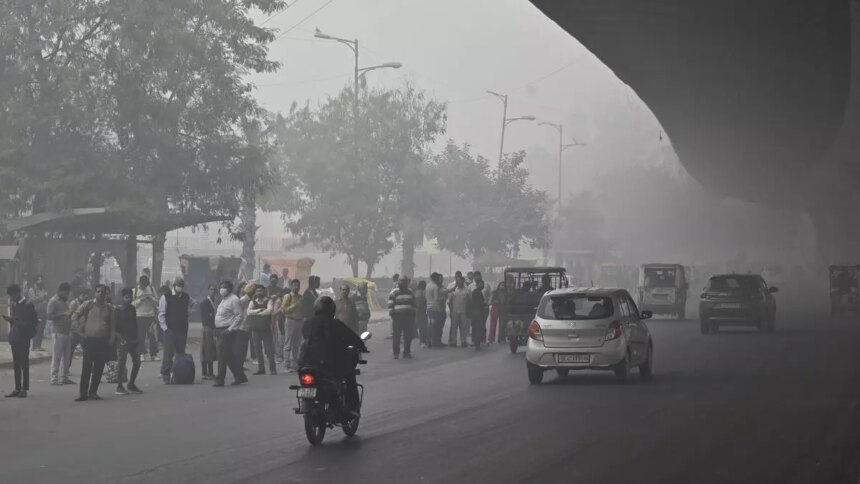The Air Quality Index (AQI) in Delhi remained in the ‘poor’ category on Sunday, deteriorating further as the city faced cold wave conditions. According to the Central Pollution Control Board (CPCB), the AQI reached 246 at 7 AM, a rise from Saturday’s measurement of 212. The temperature in the capital also fell, with the India Meteorological Department recording it at 6 degrees Celsius at 5:30 AM on Sunday, down from 9.4 degrees Celsius the previous day.
Specific areas such as Anand Vihar (AQI 292), Alipur (AQI 256), Bawana (AQI 298), and Burari Crossing (AQI 288) reported significantly high levels of pollution. Other locations, including Dwarka Sector 8 (AQI 258), Nehru Nagar (AQI 299), Rohini (AQI 288), and Mundka (AQI 317), also reflected concerning AQI values. The AQI scale classifies levels from 0-50 as ‘good,’ 51-100 as ‘satisfactory,’ 101-200 as ‘moderate,’ 201-300 as ‘poor,’ 301-400 as ‘very poor,’ and 401-500 as ‘severe.’
With temperatures plunging to single digits, many residents sought refuge in shelter homes across Delhi. Visual reports from areas near Jama Masjid, AIIMS Delhi, and other locations showed individuals bundled in thick blankets, trying to stay warm amidst the chill.
Ved Pal, an employee at a shelter near AIIMS Delhi, noted that over 40 individuals utilized the facility on Saturday night. He explained, “This is a family shelter where we provide proper bedding and as many blankets as needed. Residents also receive food twice daily, along with tea and rusks in the morning.”
Regarding medical support, he mentioned that a doctor visits the shelter to address any health concerns, and if necessary, individuals are transported to the nearby AIIMS hospital. “We maintain a first aid kit, and when the doctor is present, we distribute medications as prescribed. We also try to assist with transportation to the hospital when required. Basic medications like paracetamol are always available,” he added.
Meanwhile, the Indian Meteorological Department has issued warnings about ‘cold wave to severe cold wave’ conditions affecting parts of North India, including Punjab, Haryana, and Uttar Pradesh. IMD scientist Soma Sen Roy indicated there could be a drop in temperature by 1-2 degrees Celsius due to cold winds sweeping through North India, projecting that the cold wave may persist for one to two more days across North and Central India.










